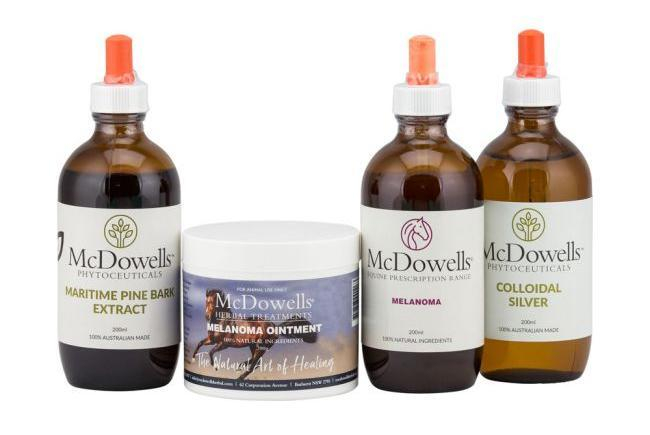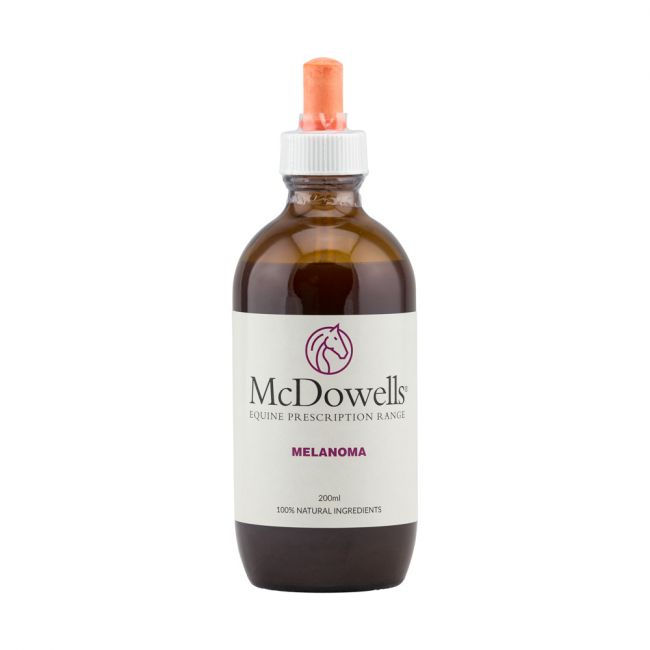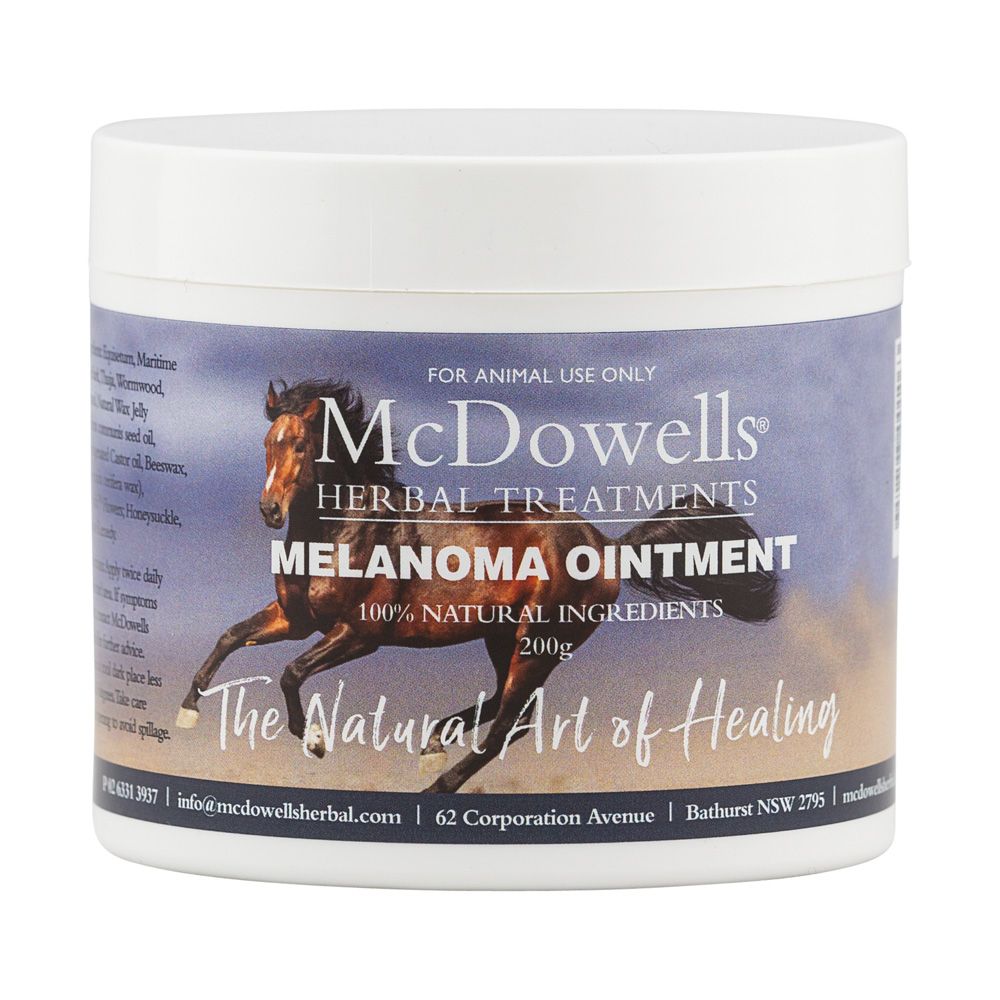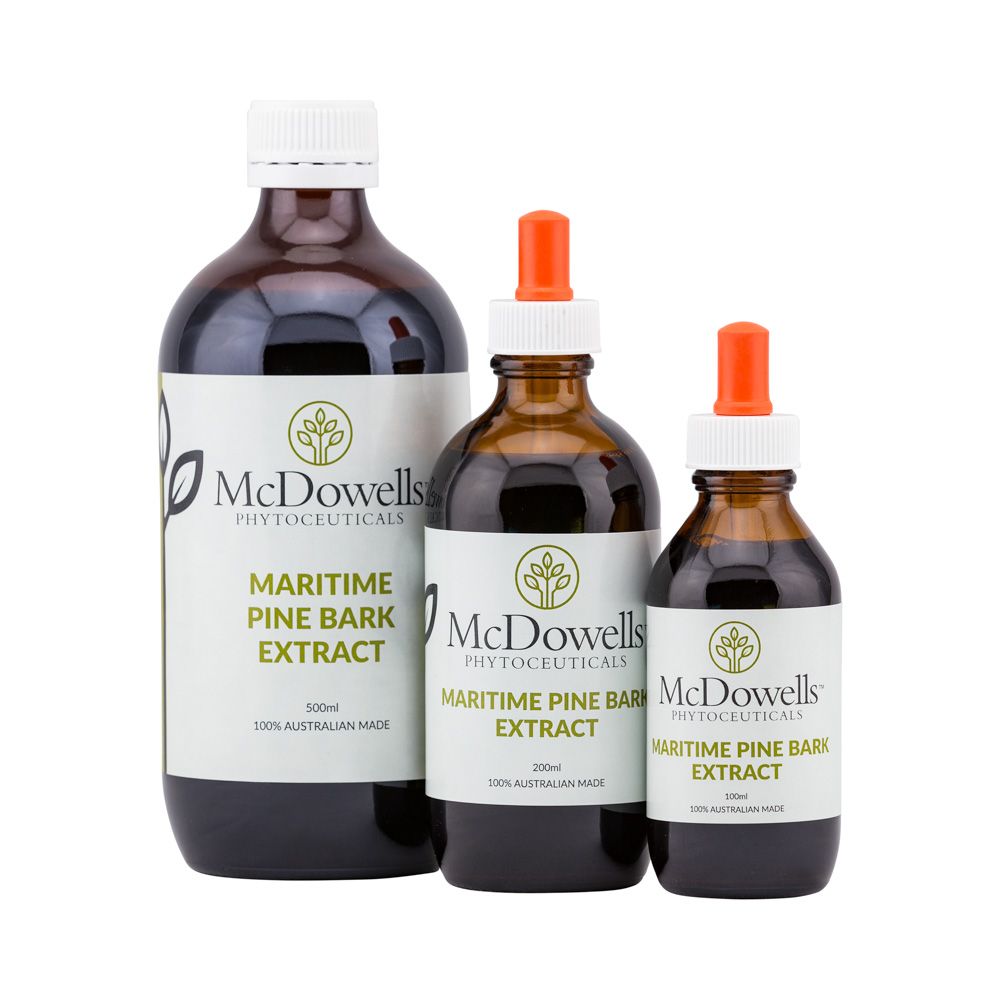Melanomas are the third most common type of skin cancer in horses, with sarcoids being the first most prevalent and squamous-cell carcinoma being second. They can be benign or malignant. The tumours can arise from either deeper or surface layers of skin or the fibrous or fatty tissues.

There are four types of melanocytic tumors - Melanocytic nevi, Dermal melanoma, Dermal melanomatosis and Anaplastic melanoma (2). They occur most commonly on the ears and noses, inner legs, and the anus and vulva of horses. Most benign tumours grow slowly, are well defined and do not appear to be inflamed. Malignant ones, on the other hands, seem to grow rapidly, ulcerate and sometimes invade adjacent tissue.
Robust immune systems routinely eliminate infective and metabolic waste as part of a healthy system. A system that is overloaded with inflammation, infection or metabolic waste has a much harder time recovering. Herbs have been traditionally used to stimulate the horse’s own natural elimination, which may help to clear these naturally occurring metabolites thereby improving the immune system's response.
Diet recommendations
An essential part of the products is the provision of green pick and healthy low sugar natural pasture hay and the cessation of exotic pre-mixed feeds and synthetic supplements to further facilitate detoxification. You need to maintain a natural feed program as recommended by McDowells. Diet information is available on this website, and is provided as part of the product instructions.
Equine cancer other than Squamous Cell Carcinoma and Melanoma are very rare still but, following the human and canine experience, it can only be a matter of time before internal cancers become much more common.
McDowells products
Melanoma ointment
This topical ointment can be applied directly to the Melanoma. In some cases it is painful to spread ointment on an active cancer. In these cases we can provide the herbal ingredients separately and these may be sprayed on the area. We are sucessfully treating Melanoma topically with an extract of Elecampane, Equisetum, Thuja, Worm Wood and Maritime Pine, with the added Bach Flowers of Honeysuckle and Rescue Remedy, mixed into an ointment base. This preparation is applied once or twice per day directly to the cancer itself.
Some home remedies, like fresh chickweed juice applied topically, seem to help in many cases but care should be exercised as this juice is highly irritant. It should never be used near sensitive tissues like around the eyes, lips, sheath, vagina or anal area.
Internal Treatment
The herbal prescription for internal use specifically targets those aspects of the immune system which allowed the Melanoma to develop in the first place. It contains the Bach Flowers Crab Apple, Honeysuckle and Chestnut Bud as well as the herbs Maritime Pine Bark, Elecampane, Horsetail and Violet Leaves.
These herbs together support the lymphatic system and the process of rejecting the cancers which almost always reduce in size quite quickly. A 12-week course is advised which is a full blood cycle. The herbs support the lymphatic system and the process of rejecting the cancers which can be seen to reduce in size quite quickly.
References
(1) Sarcoids And Melanomas
https://thehorse.com/14472/sarcoids-and-melanoma/
(2) Equine Melanoma - It’s not just black and white! Bria Tannler, DVM Student Edited by Dr. Sandra
https://www.vet.purdue.edu/esmc/files/documents/EHUsummer2013singlepg.pdf
(3) MacGillivray KC, Sweeney RW, Del Piero F. Metastatic Melanoma in Horses.
J Vet Intern Med. 2002; 16:452-456.
(4) Valentine, BA. Equine Melanocytic Tumors: A Retrospective Study of 53 Horses
(1988-1991). J Vet Intern Med. 1995: 9(5): 291-297.
(5) Goetz TE, Ogilvie GK, Keegan KG, Johnson PJ. Cimetidine for treatment of
melanomas in three horses. J Am Vet Med Assoc. 1990 Feb 1;196(3):449-52.
(6) Rowe EL, Sullins KE. Excision as treatment of dermal melanomatosis in horses:
11 cases (1994-2000). J Am Vet Med Assoc. 2004; 225; 94-96.





